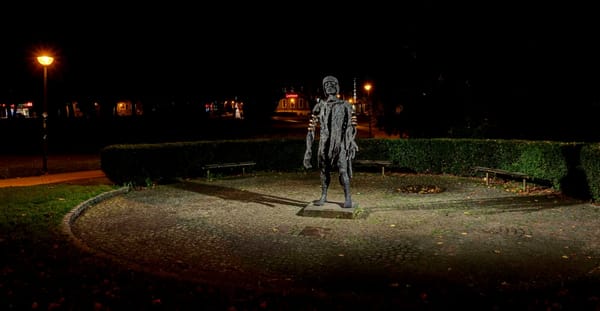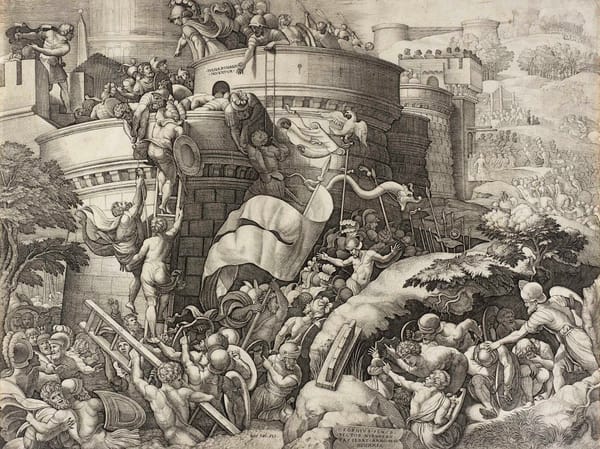Why was the Roman Empire so amazing?
The remarkable achievements of the Roman Empire and its significance in shaping the modern world.

The Roman Empire, sprawling from the misty highlands of Scotland to the sun-baked sands of Egypt, stands as one of history's most remarkable civilizations. Its achievements have laid the groundwork for much of modern society, from legal systems to architectural innovations. But what exactly made the Roman Empire so amazing? This article explores the multifaceted brilliance of Rome, shedding light on its enduring legacy.
Architectural Marvels and Engineering Feats
One of the most visible legacies of the Roman Empire is its architecture. The Romans were master builders, pioneering the use of concrete, which allowed them to create structures that would last millennia. The Pantheon, with its vast dome and oculus, remains the largest unreinforced concrete dome in the world to this day, a testament to Roman engineering prowess.
The Romans also excelled in creating a network of roads that spanned over 250,000 miles at the empire's peak, facilitating trade and military movement. Aqueducts, another engineering marvel, carried fresh water to urban centers, supporting population growth and public health. These infrastructural advancements underscored the Roman commitment to urban planning and public welfare.
Military Might and Strategy
The Roman military was the backbone of the empire, renowned for its discipline, organization, and innovative tactics. The legions, Rome's formidable military units, were highly trained and capable of executing complex maneuvers, allowing Rome to expand its territory and maintain control over diverse and vast regions. The Roman military's adaptability was also notable; they often incorporated the best practices of their enemies, constantly refining their tactics and equipment.
Legal Innovations and Governance
Rome's legal system, much of which forms the basis of Western legal principles today, was another remarkable aspect. The Twelve Tables, Rome's earliest codification of law, and subsequent legal developments emphasized the rights of citizens, property law, and legal procedures. Roman law introduced the concepts of legal representation and the presumption of innocence, principles that are fundamental to modern judicial systems.
The governance of the Roman Empire also showcased a complex and efficient bureaucracy that managed the affairs of state, from tax collection to public works, setting a precedent for future states.
Cultural and Social Contributions
Culturally, the Romans were great assimilators, absorbing and adapting the best aspects of the civilizations they conquered. This cultural syncretism enriched Roman art, literature, and religion, making Rome a melting pot of cultural innovations.
Roman literature, from the epic poems of Virgil to the satires of Juvenal, reflected the society's complexities and contributed significantly to the Western literary tradition. Socially, the Romans organized themselves in a sophisticated urban society that enjoyed a variety of public entertainments, from gladiatorial games to theatrical performances, reflecting the importance of public life in Roman culture.
Economic Powerhouse
The Roman economy, powered by extensive trade networks, was incredibly advanced for its time. It connected the East and West, facilitating the exchange of goods, ideas, and cultures. Innovations in agriculture, such as crop rotation and the use of aqueducts for irrigation, boosted food production, supporting a large population and urban growth.
Legacy and Lasting Impact
Perhaps the most amazing aspect of the Roman Empire is its enduring legacy. The remnants of Roman law, language, architecture, and government systems continue to influence the world today. Latin, the language of the Romans, remains the foundation of the Romance languages and is prevalent in legal, medical, and scientific terminology. Roman architectural styles have inspired countless buildings, from capitols to cathedrals. Moreover, the concept of the republic and the ideals of citizenship and civic duty originated from Rome and are central to modern democratic societies.
The Roman Empire was amazing not just because of its military conquests or architectural feats, but because of its profound and lasting impact on the world. Its contributions to law, governance, engineering, and culture laid the foundations for modern civilization. As we walk through our cities, speak our languages, and govern our societies, we are, in many ways, walking in the footsteps of the Romans. Their legacy is a testament to the enduring power of innovation, organization, and vision.





About the Roman Empire Times
See all the latest news for the Roman Empire, ancient Roman historical facts, anecdotes from Roman Times and stories from the Empire at romanempiretimes.com. Contact our newsroom to report an update or send your story, photos and videos. Follow RET on Google News, Flipboard and subscribe here to our daily email.
Follow the Roman Empire Times on social media: